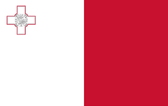
Call 0330 880 3600 Calls may be monitored or recorded. Opening Times.
- TRAVEL INSURANCE
- COVID-19 COVER
- More Options
- Help & Advice
- Existing Customers

Call 0330 880 3600 Calls may be monitored or recorded. Opening Times.

Need help?
UK Customer Services0330 880 3600*
Open Monday to Friday 9:00am to 6pm, Saturday 8:30am to 4pm and closed Sundays.
*Calls are recorded for training and quality purposes.

Official name: Republic of Malta
Capital city: Valletta
Languages spoken: Maltese, English
Population: Around 540,000
Currency: Euro (EUR)
Time zone: GMT+1
Driving side: Left
Climate: Hot, dry summers and mild, wet winters - classic Mediterranean weather
Malta, a small island nation in the central Mediterranean, punches well above its weight in history and culture. With fortifications built by the Knights of St John, prehistoric temples older than the pyramids, and a lively mix of Italian, Arab, and British influences, it has a unique identity. Today it’s both a hub for tourism and a growing centre for financial and digital industries.
Malta is made up of three main islands – Malta, Gozo and Comino - with rugged coastlines, sandy beaches, and limestone cliffs. The islands are relatively flat, with the highest point, Ta’ Dmejrek, rising only 253 metres. Its central location has long made it a crossroads of trade and conflict in the Mediterranean.
Malta International Airport, near Luqa, is the main entry point, with good connections to Europe and beyond. Buses cover the islands extensively, though they can be slow in peak hours. Ferries run between Malta and Gozo, and car hire is common, though narrow roads and left-hand driving can take some adjusting to.
As a member of the EU and Schengen Zone, Malta allows UK citizens and many other nationalities visa-free entry for short stays of up to 90 days in a 180-day period. Longer visits for work or study require appropriate visas. The British High Commission in Valletta offers consular services.
The euro (EUR) is Malta’s official currency. Cards are widely accepted, and ATMs are plentiful across the islands. Malta is generally affordable compared to northern Europe, though prices rise in peak tourist season.
Healthcare in Malta is of a high standard, with modern hospitals and clinics. EU visitors can access public care with an EHIC/GHIC card, but comprehensive travel insurance is still recommended to cover private treatment or repatriation. Pharmacies are common and well stocked, and tap water is safe but often desalinated, so bottled water is preferred by some travellers.